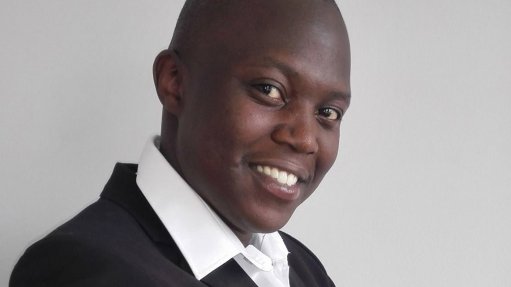
FORTUNE MSIBI Mining engineering students face the challenge of a lack of available jobs in the sector, as a result of South Africa’s financial crisis
The University of Witwatersrand’s (Wits’) Students Mining Engineering Society (SMES) aims to increase the integration of mining engineering graduates into the mining industry this year, as well as to encourage mining engineering students to have an opinion on mining-related issues in South Africa.
SMES chairperson Fortune Msibi tells Mining Weekly that incorporating mining engineering students into the industry is a significant challenge and was one of the main topics at the society’s yearly gala dinner, held last month at the Wits’ Chamber of Mines building, in Johannesburg.
This event focused on the future of the mining industry in South Africa, specifically with regard to the supply and intake of mining graduates. This theme encouraged discussion on the correlation between the number of university mining graduates and the number of graduates that have actually been absorbed by industry.
Msibi explains that one of the most important challenges that graduates in mining engineering face is the lack of jobs in the sector, as a result of South Africa’s financial crisis.
He adds that there is a discrepancy between policymakers who, for the past five years, have been saying mining engineering is one of the scarcest skills, which should guarantee entry (for all graduates) into the industry, and the fact that about 23 of 90 students from Wits were unable to find employment in the sector after graduation in 2015.
It has become apparent that graduate mining students are struggling to find employment, as mining companies have been forced to reduce costs, owing to the decline in commodity prices, with the number of people joining the industry subsequently also having declined, Msibi elaborates.
Companies also no longer have funds to sponsor, for example, societies such as the SMES, as they have done previously, which is a major concern for the SMES, as such societies strive to help mining students enter the sector by collaborating with the Wits Mining School Council to make tutoring- and peer-mentoring programmes presented by senior students available to mining students.
“It can be very daunting for first-year students to adjust to the mining engineering course, especially when they come from a secondary education environment that is completely different from the reality of mining engineering studies,” Msibi notes, adding that the SMES aims to ensure that members gain employment and reduce the failure rate of first-year students. He indicates that the failure rate of first years can be very high, as students often feel excluded from the mining engineering course.
Msibi also represents the SMES at Witwatersrand University Mining Engineers Association meetings, and tries to identify solutions to assist students in finding vacation work, which is a Wits graduation requirement for students. “Academics and business leaders who are not directly involved in the mining industry are discussing the industry and are speaking on our behalf . . . we are trying to create awareness of mining related issues among students through SMES activities so that they understand what is going on in the industry.”
To promote student integration, the SMES will celebrate 120 years of the Wits School of Mining Engineering’s existence next month. The society is also planning a youth in mining conference this year, which will comprise students from Wits, as well as the universities of South Africa, Johannesburg and Pretoria. The SMES will also host its annual Miners Ball at the end of this year, which serves as a farewell for final-year students who are members of the society.